Published: November 30, 2024

Ever wondered why your skin always seems to become so much drier in the winter months? It’s partly down to how sebum production slows down as the temperatures begin to drop, meaning that by the time winter arrives, your skin contains far fewer oils and has a much harder time keeping itself conditioned and moisturized. The fact that the air around you is so dry doesn’t help either as this causes the moisture in your skin to evaporate away at a much faster rate.
The result is flaky, dry skin that usually takes on quite a dull and rough appearance. For some, this happens like clockwork every winter and doesn’t let up until the spring.
Now that winter is here once again, does this mean that you have to resign yourself to yet another season of dry skin? Not necessarily. Keep reading as Avinichi explains what you need to be doing to save your skin from having to deal with winter dryness for the next few months.
Moisturize at Least Twice a Day
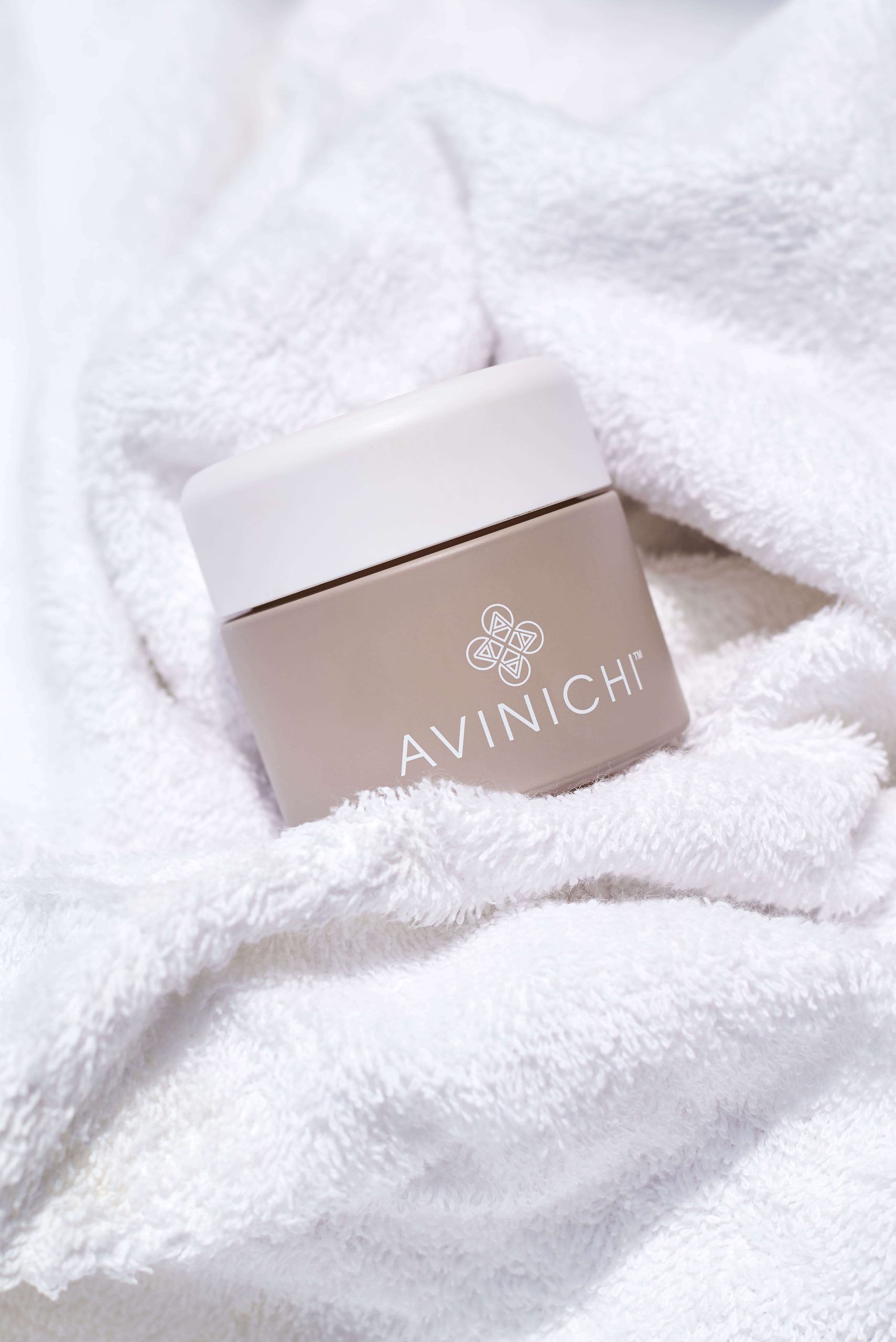
Let’s start by talking about one of the most useful tools at your disposal when dealing with dry skin; a moisturizer. Since your skin is currently struggling with a lack of sebum, keeping it moisturized will go a long way in placating it, especially if you pick a moisturizer that contains plenty of emollients and occlusives. Emollients help to fill in the tiny gaps and cracks between your skin cells, which dry skin has plenty of, while occlusives form a thin seal over the skin’s surface. This helps with moisture retention while also keeping skin cells feeling protected from the environment.
One of our favorite winter moisturizers is the Avinichi Noni Night Repair Cream. Thanks to the likes of jojoba seed oil and shea butter, its occlusive and emollient content is fantastic. It contains several humectants too, including sodium hyaluronate. These bind moisture to the skin, providing instant hydration. The plethora of antioxidants and vitamins in this formula will also help to keep your dry skin feeling healthy.
Be Gentle When Cleansing
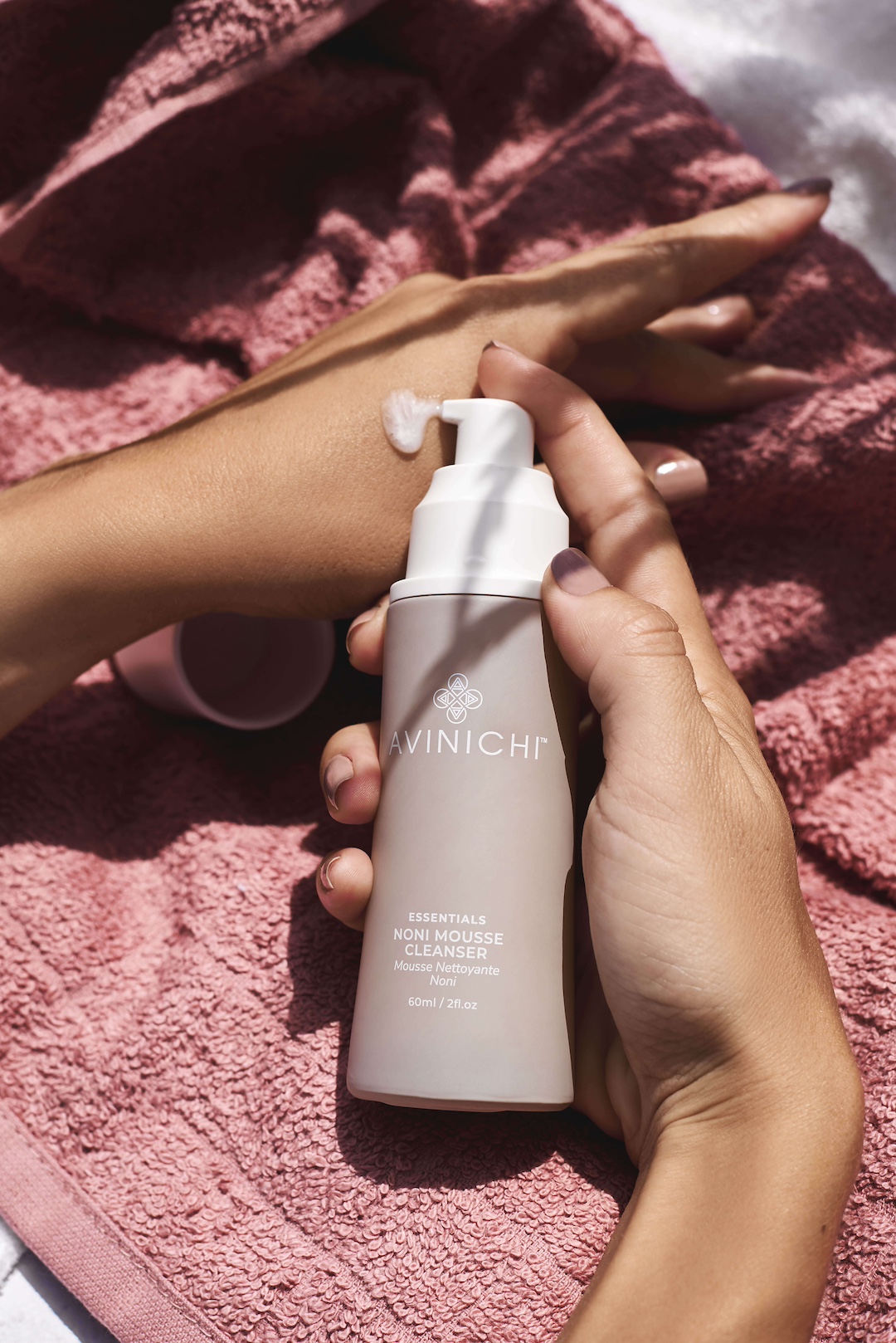
Since your sebaceous glands are less active in the winter months, the sebum that is produced needs to be preserved as much as possible. After all, the less sebum your skin has, the drier it will be.
However, each time you cleanse your skin, you remove those precious sebum reserves. The more powerful your cleanser, the more sebum is removed. This is why it’s generally advised to switch to a gentler cleanser once temperatures begin to drop. Ideally, you need one that will cleanse away dirt and excess sebum while still leaving some of that oil behind on your skin.
This is where the Avinichi Noni Mousse Cleanser excels. This sulfate-free cleanser makes use of coconut-derived surfactants. These cleansing agents are known for their gentle nature and also have a conditioning effect on the skin. The addition of plant oils in this formula, including argan and moringa, prevents even severely dry skin from drying out any further. Meanwhile, the numerous botanical extracts in this cleanser, from aloe vera and chamomile to noni fruit and calendula, will soothe the feeling of inflammation while ensuring that your skin feels refreshed.
Invest in Moisturizing Overnight Masks
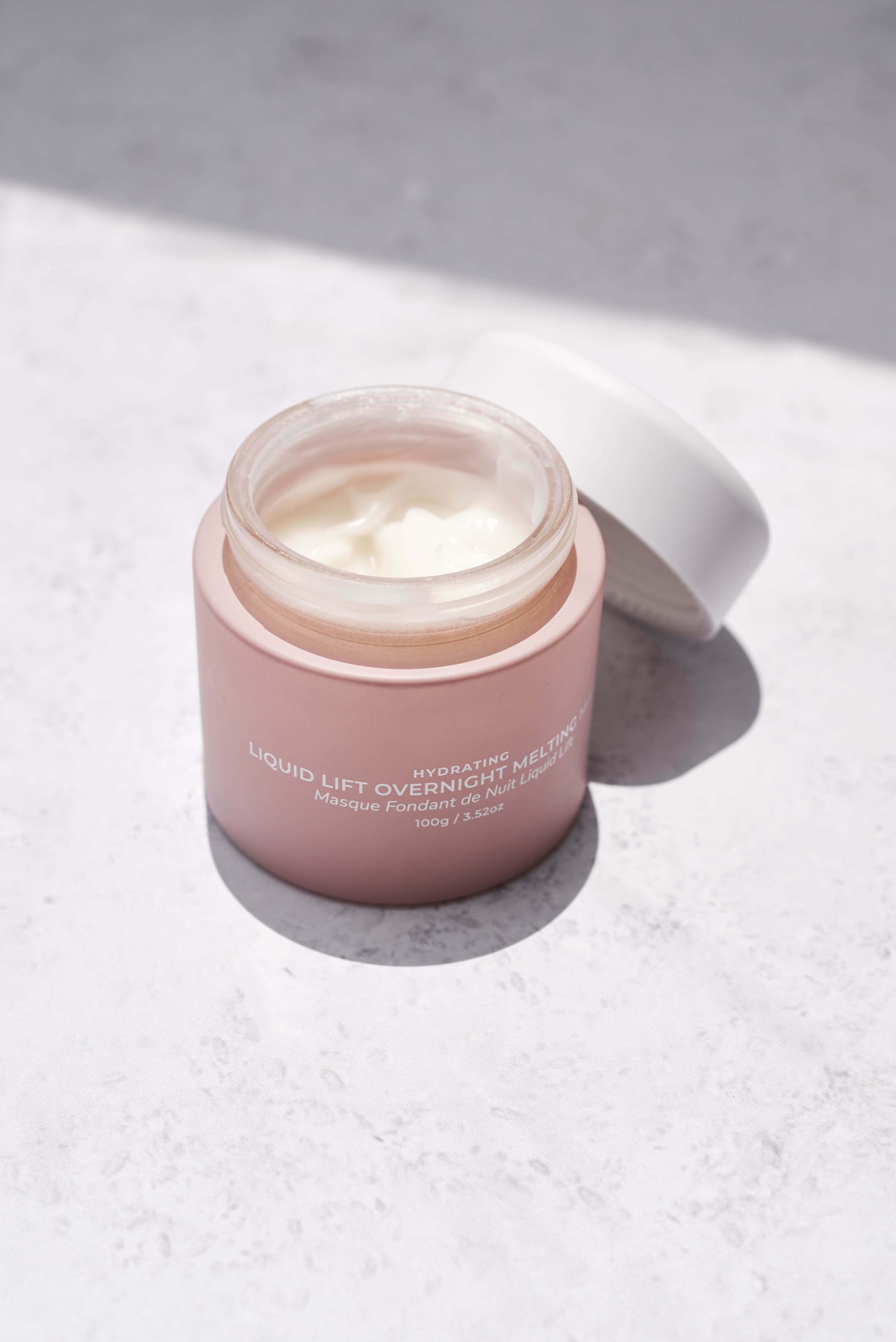
While a moisturizer is one of the best ways to counter the feeling of dry skin, this is sometimes not enough, especially in the evenings. While you sleep, your skin tends to dry out even further. A rich night cream will definitely help but if your skin is extremely dry, you could still wake up with flaky patches.
Add an overnight mask to your evening skincare routine, however, and all of this could change. Face masks usually contain a higher concentration of ingredients than a moisturizer. This means that a moisturizing face mask can work wonders on dry skin when it has all night to soak in.
If you don’t yet have a moisturizing overnight mask, check out the Avinichi Liquid Lift Overnight Melting Mask. With peptides, vitamin E, squalane, and sodium hyaluronate, it will quickly leave your skin feeling saturated with moisture. At the same time, the long list of superfruit extracts in this mask brings with them an incredible array of antioxidants. These will protect against the appearance of free radical damage, which dry skin is very prone to.
Take it Easy When Exfoliating
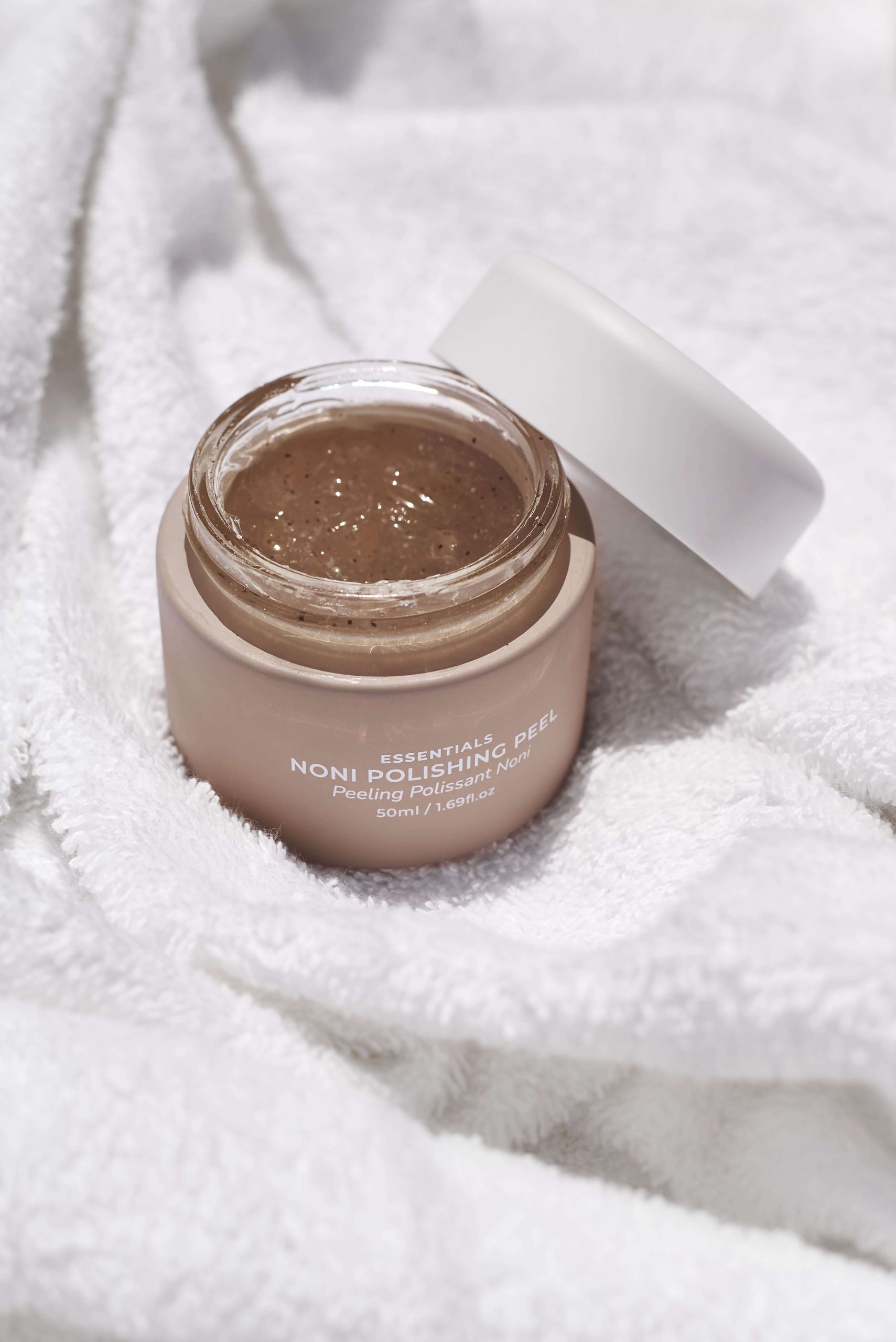
We’ve already talked about how important it is to be gentle with your skin when cleansing so that you don’t remove too much of its sebum reserves. Well, the same applies to your exfoliating habits too. In fact, since exfoliants work on a deeper level of the skin than cleansers, keeping things gentle becomes even more crucial.
This means putting away the abrasive scrubs and potent acids that you were using over the summer. Swap these for a gentler exfoliator, like the Avinichi Noni Polishing Peel. This one exfoliates with a combination of mandelic acid, a very gentle alpha-hydroxy acid with a large molecular size that prevents it from exfoliating too intensely, and bamboo powder. It also contains plant oils and vitamins to help give your skin an even brighter glow once you’re done!
One final exfoliating tip: don’t do it too much! It can be tempting to want to exfoliate dry skin every day in an attempt to get rid of all of those flakes. However, this will only damage your skin and leave it even drier. Once winter arrives, dry skin shouldn’t be exfoliated more than once or, at most, twice a week.
Seek Out Barrier-Loving Ingredients
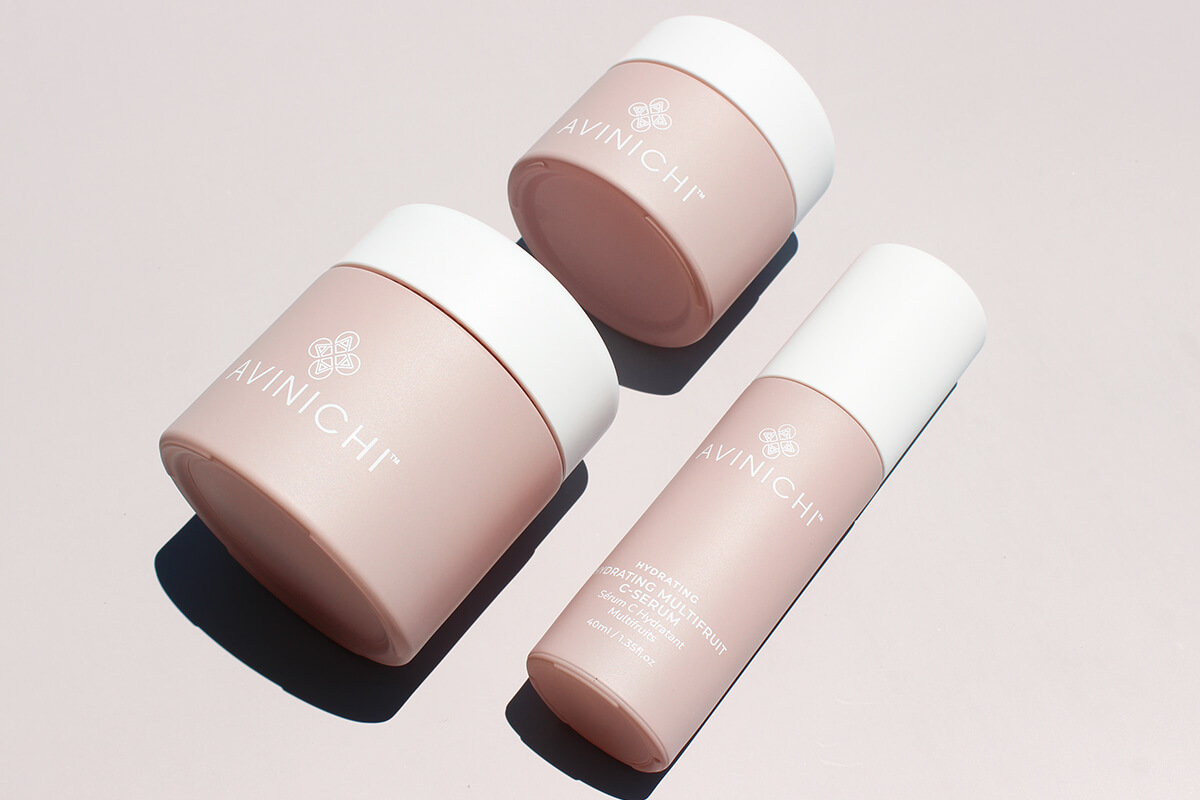
The lack of sebum in your skin during the winter months doesn’t only cause dryness. It also leaves your skin barrier more susceptible to damage since sebum usually forms an integral part of that barrier. Once this barrier ends up even slightly compromised, a number of skin problems usually follow, along with a rapid rise in sensitivities. If you thought dealing with dry skin was bad, adding sensitivities into the mix will make life even more of a challenge!
To prevent this while also countering the feeling of any sensitivities that have already occurred, make sure that your skincare routine contains plenty of ingredients that will keep your skin barrier feeling optimized. Peptides do this well, as do amino acids. Vitamin E is also loved for how it keeps the skin barrier feeling supported while hydrating ingredients give the barrier a thicker and stronger feel.
You’ll find all of the above in the Mulberry Velvet Silk Creme from the Avinichi Mulberry Hydrating Regimen. It contains some powerful antioxidants too, all of which will also contribute to a healthier-feeling skin barrier.
Tone Down Your Use of Active Ingredients
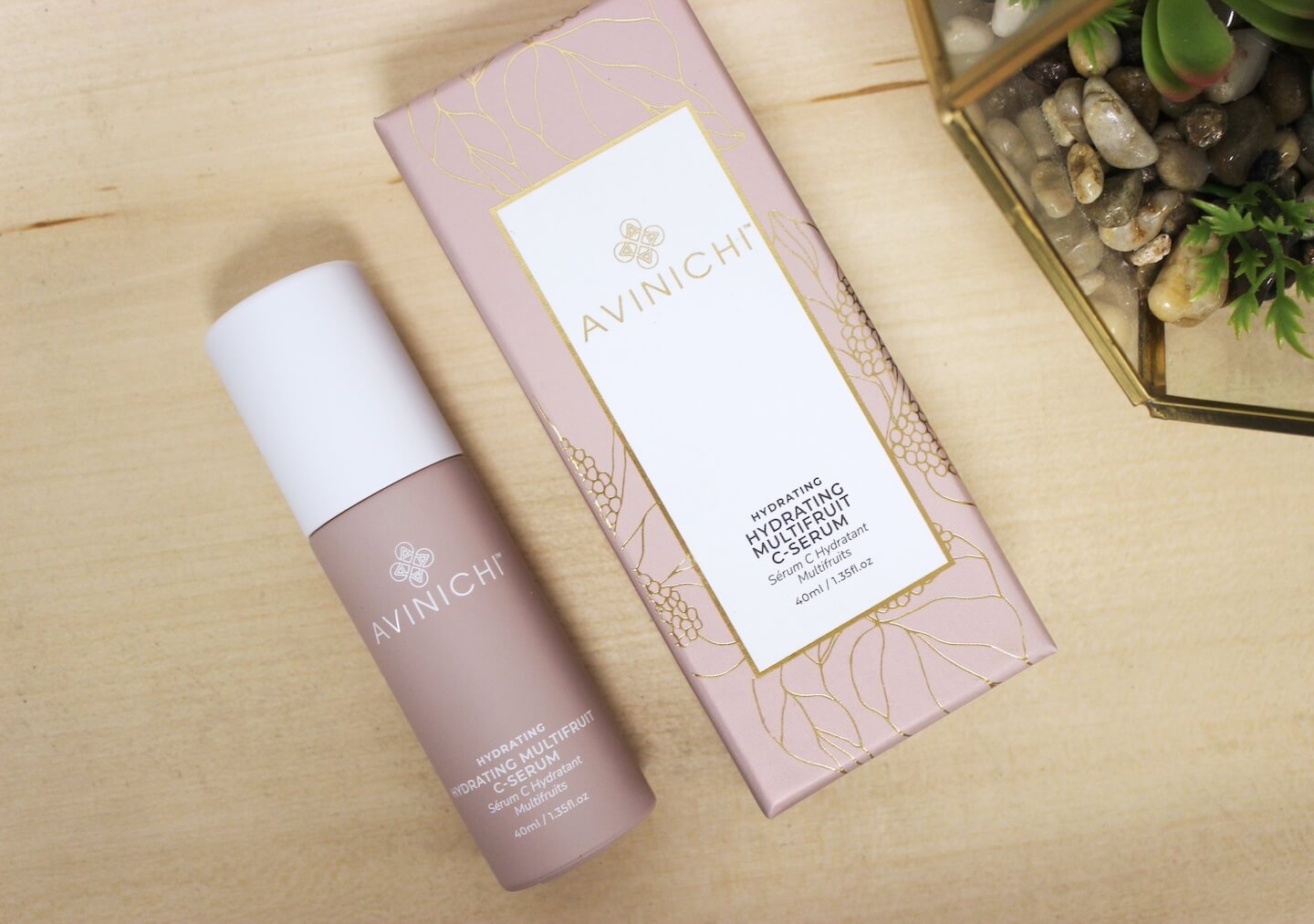
As we discussed above, sensitivities become much more common in the winter months. This is especially the case if you have dry skin. Sometimes, ingredients that your skin was happily tolerating throughout the year may prove to be too strong come winter, leaving your skin feeling irritated and inflamed.
This is why many choose to tone down their use of potent active ingredients in the winter. We’ve already talked about doing this with your exfoliator – swapping those high-percentage acids for a gentler blend. However, other stages of your skincare routine that feature powerful active ingredients may need to be reconsidered too.
One ingredient that’s notorious for triggering reactions in the winter is retinol. There’s no denying that this vitamin A derivative is a superstar at tackling the appearance of skin aging. However, it can also leave the skin feeling very sensitive. Fortunately, this doesn’t mean that you have to completely give up on the idea of using vitamin A. Instead, look for a gentler derivative, such as retinyl palmitate. It provides very similar results but without the associated irritation. If you’d like to give it a try, check out the Avinichi Hydrating Multifruit C-Serum. It brings together vitamins A, C, and E, along with several hydrating ingredients to give your skin a plump and dewy finish.
Continue Using Sunscreen
Another reason why dry skin often worsens in the winter is because of the sun. While you may not think that the weak winter sun is capable of doing much to your skin, those harmful UV rays are always around, even on dull and cloudy winter days. Allow them to touch your skin and they’ll only make that dryness even worse.
This is why it’s essential to protect your skin from the sun year-round. Don’t put away your sunscreen just because the temperature has started to drop. Instead, be consistent with your sun protection habits and your skin will look all the better for it.
Stay Away From Hot Water
By this point, you’ll be fully aware of how important it is to preserve your skin’s sebum as much as possible in the winter. It’s vital for keeping your skin soft and supple. However, even if you go gentle with your cleanser and exfoliator, you’ll still be stripping your skin of its sebum if, at the same time, you’re using hot water on your face and body.
While a hot shower may feel exceptionally satisfying at the end of a bitterly cold winter’s day, it’s not doing your skin any favors. Hot water melts the skin’s sebum, after which it then washes away and leaves the skin feeling drier than ever. The skin on your face is most susceptible to this due to its thinner nature, but the skin on your body can also quickly dry out when exposed to hot water.
While it’s understandable to want to crank the temperature up in the winter, resist the urge! Keeping water at a lukewarm temperature will be so much more beneficial for your dry skin.
Summary
As common as dry skin may be in the winter, there are plenty of steps that you can take to prepare your skin for this onslaught and prevent that dryness from becoming overwhelming. Start with the tips that we’ve shared above and you’ll soon notice that your skin takes on a softer, smoother, and more conditioned finish, even on a bitterly cold and dry winter’s day!
Click here to enhance your winter skincare routine with more bestselling products from Avinichi.
